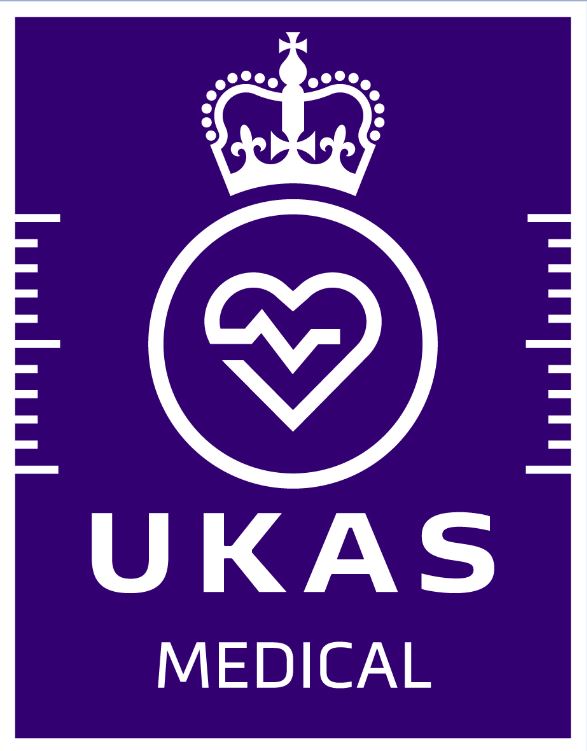Clinical Biochemistry
The Department Of Biochemistry
|
8910 |
Click here for a list of Biochemistry UKAS accredited assays. |
Introduction
Clinical Biochemistry is a UKAS accredited clinical laboratory service that uses biochemical analysis to provide results used for the diagnosis and monitoring of disease. The laboratory is automated for the majority of tests but some testing requires more complex apparatus and manual techniques.
The Department actively promotes and supports Point-of-Care Testing (POCT) managing blood gas analysers across multiple hospital sites, blood glucose, ketone and INR testing meters and provides an on-site laboratory service in the Diabetes Centre.
The Department provides a comprehensive clinical biochemistry service to the Trust. In addition, a full service is provided to the South Birmingham community Trust, the Royal Orthopaedic Hospital and GP practices. The Department also provides specialist services including endocrinology to other hospitals in Birmingham, the West Midlands Region, the rest of the UK and the Republic of Ireland.
The Department provides a clinical advisory service, which includes the clinical interpretation of results, advice on the appropriate selection of laboratory tests and investigation and monitoring strategies for individual patients and for specific diseases. There is close liaison with clinicians and other healthcare personnel within the Trust, the Community and in other hospitals to ensure best practice in the use of the Clinical Biochemistry Service, for clinical governance and clinical audit purposes and ensure that the Clinical Biochemistry Service is an integrated component of patient care pathways.
This section outlines the use of the laboratory and many of the tests available. It is not completely comprehensive and advice should be sought if there are queries, from the Duty Biochemist within hours or the consultant on-call rota out-of-hours (contact the on-call Biomedical Scientist first).
Opening Hours
Urgent Samples
Specimens requiring immediate attention on receipt should be identified by obtaining an urgent number from extension 15985. Only specimens requiring urgent analysis where there is a need for clinical management decisions that can only be taken by biochemical investigation should use this service. Many of the urgent management decisions can be taken using results supplied by the Point-of-Care instruments available in the emergency department and intensive care units.
Prior to sending any urgent specimens, you must telephone the laboratory before dispatch of the specimen so that you can be given an urgent specimen identification number. This urgent specimen number must be noted in the designated box on the request form to provide easy identification for the laboratory staff on arrival within the department, as must the correct location of the patient. This will facilitate its processing and ensure that the results are returned directly to the requesting source. It is important to do this in order that we identify urgent specimens amongst the 4,000 requests we receive daily. You must do this at any time of day or night in order to facilitate fast processing.
The following wards are seen as priority locations:
| Ward | Turnaround time (from receipt of specimen) |
ED, CDU, WACT, WACB, WACE, W620 |
1 hour |
| WCCA, WCCB, WCCC, WCCD, WADM, WAMB, WBU, Oncology, W622, QCHEMO (Biochem only), QCCU, QSSU, ROTX, St Mary’s Hospice and GP samples marked urgent. |
2 hours |
Please note that at times of high demand or if there are instrument malfunctions we may not be able to achieve this turnaround time.
Arrangements for urgent endocrine tests, e.g. neonatal 17-hydroxyprogesterone, should be made via the Duty Biochemist on extension 16543 during normal working hours.
For pregnancy testing, a urine test is the first line investigation and will normally be done as a Point-of-Care Test (POCT) in accordance with Trust policy. The Microbiology Department is able to offer this test during normal laboratory hours, if POCT is not available. For a patient with suspected ectopic pregnancy who is being/has been referred, Birmingham Women’s Hospital have a restricted service for serum hCG on weekend early mornings but do not have an out-of-hours service. Any arrangements for a serum hCG in this situation will be made by Birmingham Women’s Hospital clinical staff.
Samples sent for serum hCG in QEH will be assumed to be for cancer monitoring as the hCG assay is not validated for pregnancy testing and we have no reference intervals for any of the trimesters of pregnancy.
Read more: Clinical Biochemistry
- Created on .
- Last updated on .
- Hits: 32306








